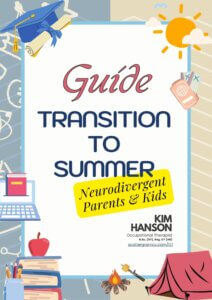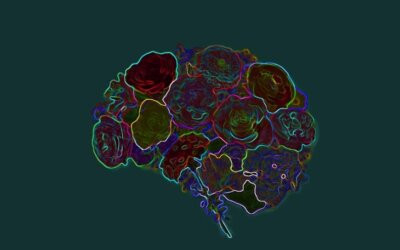Whether you’re a neurodivergent parent or a child or young adult, transitions like the end of the school year can disrupt your well-oiled schoolyear routines.
Routine and predictability reduce anxiety and provide regulating feelings. They can provide a sense of control over one’s life. For you or your neurodivergent offspring, transitions from routines with high predictability (e.g. school/work) to situations with low predictability (vacations, summer, etc.) can result in increased stress, anxiety and resistance. Without predictability, a sense of control over the situation may decrease.
You or your child may experience changes in sensory stimuli and different kinds of social pressure, such as:
- SUMMER CAMP: new, busy, loud environments with new, unknown peers, and new people for mom, dad, or caregiver to navigate (sign-ups, drop-offs, pick-ups, ugh).
- SUMMER VACATION: talk about new, unpredictable, and unfamiliar, with a barrage of new sensory and social stimuli! (Unless you’re lucky enough to go to a quiet cabin in the woods).
- SUMMER SOCIAL EVENTS: expectations of social participation often increase in the summer (BBQs, weddings, parties, visiting friends and family).
- NOTHING TO DO: in the absence of external demand, understimulation can be as big a problem as over-stimulation.
The outcome of these new or higher expectations may be more frequent meltdowns or shutdowns, an increase in masking, or the desire to hole up inside until the weather cools and life goes back to ‘normal’. Lower expectations and under-stimulation, on the other hand, can lead to excess reliance on social media, boredom, and loneliness.

Read our guide on what you can do to move through the transition from school-year to summer with grace!




